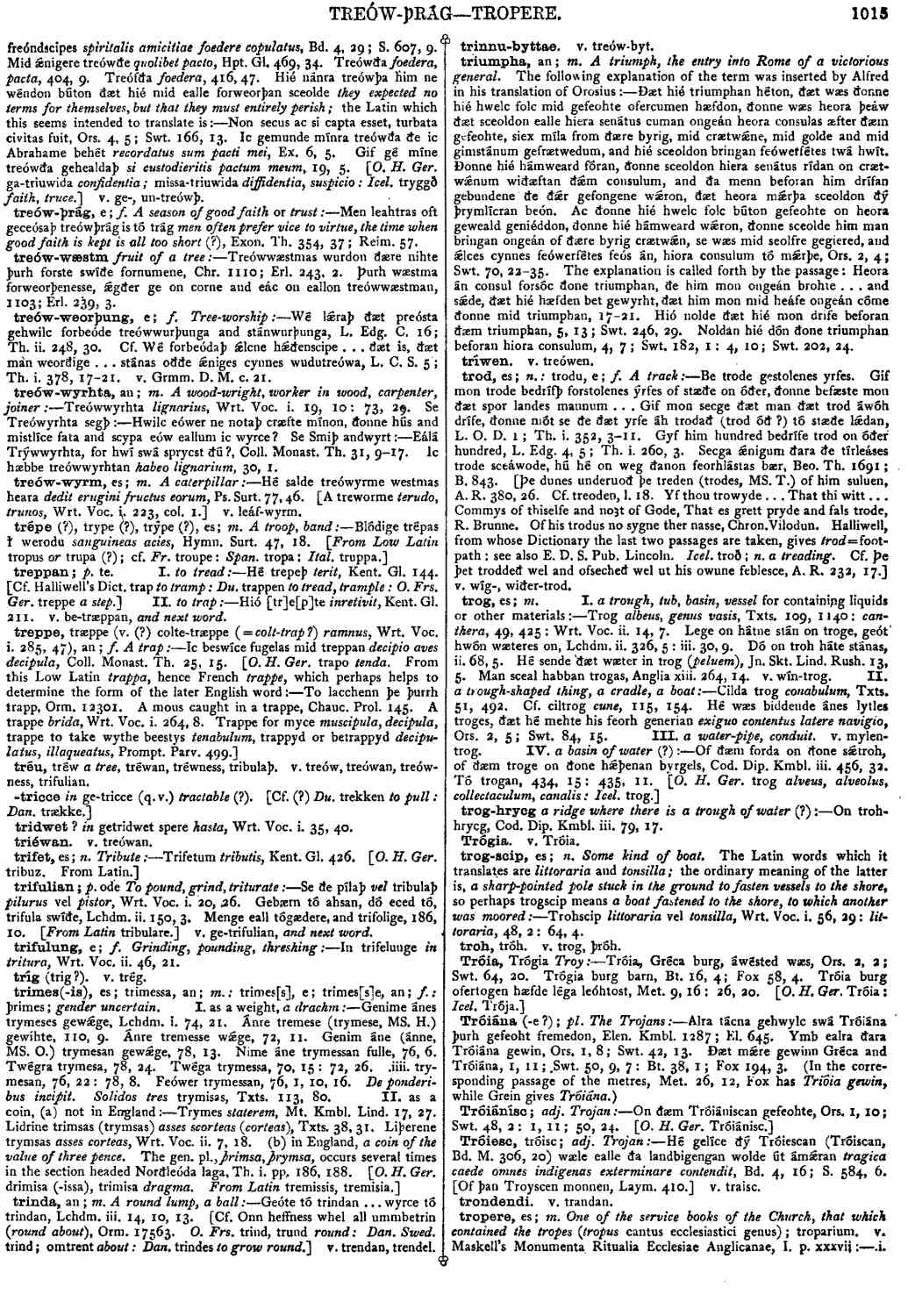trod
- noun [ feminineneuter ]
-
Be trode gestolenes yrfes. Gif mon trode bedrífþ forstolenes yrfes of stæðe on óðer, ðonne befæste mon ðæt spor landes mannum . . . Gif mon secge ðæt man ðæt trod áwóh drífe, ðonne mót se ðe ðæt yrfe áh trodað (trod óð ?) tó stæðe lǽdan,
- L. O. Ð. 1 ; Th. i. 352, 3-11.
-
Gyf him hundred bedrífe trod on óðer hundred,
- L. Edg. 4, 5 ; Th. i. 260, 3.
- Secga ǽnigum ðara ðe tírleáses trode sceáwode, hú hé on weg ðanon feorhlástas bær. Beo. Th. 1691; B. 843.
Bosworth, Joseph. “trod.” In An Anglo-Saxon Dictionary Online, edited by Thomas Northcote Toller, Christ Sean, and Ondřej Tichy. Prague: Faculty of Arts, Charles University, 2014. https://bosworthtoller.com/31050.
Checked: 0